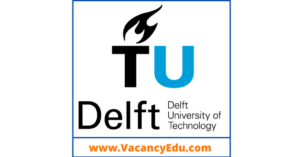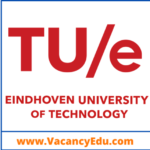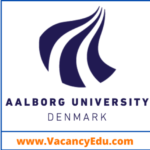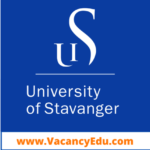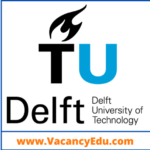Delft University of Technology (TU Delft), Netherlands invites online Application for number of Fully Funded PhD Degree at various Departments. We are providing a list of Fully Funded PhD Programs available at Delft University of Technology (TU Delft), Netherlands.
Eligible candidate may Apply as soon as possible.
(01) PhD Degree – Fully Funded
PhD position summary/title: PhD Position in Quantum Networks
The vision of a Quantum Internet is to provide fundamentally new internet technology by enabling quantum communication between any two points on earth. Such a Quantum Internet will – in synergy with the ‘classical’ Internet that we have today – connect quantum processors in order to achieve unparalleled capabilities that are provably impossible using only classical communication.
At QuTech and the Quantum Internet Alliance, we are working on making such a network a reality.
PhD Position is available on the following topic:
- Quantum Network Systems. The goal of this position is the design and implementation of Quantum Network Systems concepts on state-of-the-art quantum hardware on a small network of quantum processors, as well as supporting simulators. The successful candidate enjoys experimenting with different approaches, and is excited by computer and network systems research that works towards bringing quantum network technologies into the real world together with a diverse team from quantum hardware, software engineering, and quantum information.
Deadline : Open until filled
(02) PhD Degree – Fully Funded
PhD position summary/title: PhD Position in Systems Security
The Cybersecurity (CYS) group at the Faculty of Electrical Engineering, Mathematics and Computer Science (EEMCS) invites applications for full-time doctoral candidates in Systems Security. Successful candidates will develop novel methodologies and protocols for increasing the security of lattice-based cryptographic systems. Examples include developing techniques to build efficient and secure multiparty computation and other encryptions. Successful candidates will have the opportunity to work closely with world-class researchers at TU Delft and our research collaborators in Europe and the US.
Deadline : September 1, 2024
View All Fully Funded PhD Positions Click Here
(03) PhD Degree – Fully Funded
PhD position summary/title: Phd Position for Low-power High-dynamic Range Image Sensor
Image sensors have been used widely in our daily lives. In this project, we will develop a low-power image sensor for IoT applications such as environment monitoring in remote areas. Two key aspects are critical for this application: low power and high dynamic range. While the first requirement is very straightforward, the second requirement enables the image sensor to be used in an outdoor environment where the light intensity can differ throughout the day.
Deadline : August 31, 2024
(04) PhD Degree – Fully Funded
PhD position summary/title: PhD Position on Resilient Consumer-Centric Electricity Market Design Under Deep Decarbonization
The 2022 energy crisis in Europe painfully illustrated that current electricity markets leave consumers exposed to extreme price risks. Even in a future electricity system free of fossil fuels, prolonged periods without wind and sun may lead to extreme electricity prices, which consumers are unable to hedge in current retail electricity markets. At the same time, capturing the value of consumer flexibility typically requires exposing them to short-term, volatile price signals, further contributing to their risk exposure.
In this PhD, we focus on a key challenge in the design of consumer-centric electricity markets: how do we allow consumers to hedge their long-term price risk, while providing sufficient incentives for operational efficiency and investments through real-time electricity price signals?
To address this question, you will develop state-of-the-art equilibrium models to capture market clearing and price formation processes, market distortions and policy interventions, as well as consumer behavior. The focus will be on consumer attitudes, preferences and potential bounded rationality, as well as institutional arrangements that influence consumers’ decision making. You will advance state-of-the-art market design concepts, such as capacity subscriptions and affordability options, tailored to the needs of small-scale consumers.
Deadline : 31 August 2024
(05) PhD Degree – Fully Funded
PhD position summary/title: Phd Position Smart Sensing IC for Next-generation Power Management Systems
We are seeking a highly motivated PhD candidate to work on pioneering research in smart sensing integrated circuits (ICs) for power conversion systems. This includes, but is not limited to, motor drivers, DC-DC converters, and other related applications. The goal of this research is to develop advanced sensing technologies that can monitor system operations in real-time, offering numerous benefits such as fault detection, lifetime prediction, and dynamic optimization for enhanced performance.
Deadline : August 31, 2024
Polite Follow-Up Email to Professor : When and How You should Write
Click here to know “How to write a Postdoc Job Application or Email”
(06) PhD Degree – Fully Funded
PhD position summary/title: PhD Position Modelling Recovery and Adaptation of Infrastructure Systems
As the successful candidate, you will contribute to analysing and better understanding of resilience of interconnected infrastructure systems. Your research will combine methodological and empirical contributions to infrastructure and urban resilience. Based on empirical research and spatial-temporal data analysis, you will conceptualize dynamic relationships that are relevant to recovery across infrastructure, and will incorporate these concepts into a computational network model to simulate different disaster impacts and recovery actions. Via scenario analysis, you will then be able to study the impact of different types of crises and disasters, and the subsequent recovery processes. In addition, this approach allows you to investigate the impact of sustainable transitions on resilience and post-disaster recovery of urban infrastructure systems. The outcome of this PhD is an improved understanding of the interdependencies of our infrastructure systems and how they respond to various shocks and transformations. This will help inform policies at different scales to improve societal resilience.
Deadline : 30 August 2024
(07) PhD Degree – Fully Funded
PhD position summary/title: PhD Position Multi-Fidelity Modeling for Design Space Exploration for Purpose Built Wind-Assisted Ships
The maritime industry is under pressure to reach the net-zero Greenhouse Gas target set for 2050 on international shipping to alleviate the climate crisis. A strong collaboration between industry, research institutes, and universities is needed to develop and implement novel technologies to achieve this target.
In response to this challenge, TU Delft recently launched a multi-disciplinary, interfaculty research program on Wind Assisted Ship Propulsion (WASP) focusing on three research themes: 1) Fluid dynamics, 2) Design and operation, and 3) Sustainable and societal impact. We are a young, international and diverse team within the Faculties of Aerospace and Mechanical Engineering. We approach problems in a horizontal “team spirit” and continuously traverse boundaries between theory, simulations, and experiments. We strive for a co-creative and stimulating environment where you can develop further skills as a scientist, team member and teacher. We place great emphasis on a collegial working environment where everyone is welcome and encouraged to shape a stimulating and impactful PhD track. In addition, given the multi-disciplinary nature of wind-assisted technologies, your research will contribute to other projects on different themes within the WASP program
Deadline : 25 August 2024
(08) PhD Degree – Fully Funded
PhD position summary/title: PhD Position Researcher Imaging Materials
Ever wondered how individual gel molecules perceive mechanical stresses, or what happens to the glassy polymer when they soften? Join us to figure that out. We are looking for a PhD candidate to join our team at TU Delft to work on developing methods for imaging and sensing dynamic phenomena in soft and bioinspired matter.
You will be working with spectroscopy and microscopy experts to develop chemistry suitable for fluorescent imaging of highly dynamic materials. Experience with organic synthesis and photophysics is highly desirable and affinity for physics and engineering is certainly welcome! Questions: Contact Sabina Caneva or Georgy Filonenko.
Deadline : 25 August 2024
Click here to know “How to Write an Effective Cover Letter”
(09) PhD Degree – Fully Funded
PhD position summary/title: PhD Position Thermo-Mechanical Methods of Recycling Fine Aggregates – Recovery of Clean Sand and Cement Paste Rich Powder
We are seeking for a highly motivated PhD candidate to join our research team at Resources and recycling, Faculty of Civil Engineering and Geosciences. The position focuses on developing innovative thermo-mechanical methods of recycling fine aggregates retrieved from construction and demolition waste. The research involves experimental studies to evaluate the effect of heating and mechanical processing techniques on the property of recycled fine aggregates and cement rich powder, such as particle size distribution, morphology, thermal stability, and reactivity. Additionally, the project investigates the performance of concrete mixtures made by incorporating recycled aggregates, including mechanical strength, durability, and environmental impact. The successful candidate will have the opportunity to work on innovative research ideas that address the critical societal challenges in sustainable construction and contribute to the advancement of circular economy principles in the building sector.
Deadline : 25 August 2024
(10) PhD Degree – Fully Funded
PhD position summary/title: 2 PhD Positions on The Delft Laminar Hump
PhD position 1: will encompass theoretical and numerical modelling, necessary to simulate the effect of surface modifications on swept wing transition. Flow stability analysis tools available in our team can be used, including Orr-Sommerfeld solvers, linear/non-linear Parabolised Stability Equations and our non-linear Harmonic Navier-Stokes solver. An extensive validation effort will involve high-fidelity Direct Numerical Simulations, in collaboration with the group at KTH Stockholm (Prof. D. Henningson and Dr. A. Hanifi). Research stays at KTH will be covered by the project.
PhD position 2: will explore the experimental design and testing of laminar hump models and undertake advanced flow measurements to characterise the underlying transition mechanisms. The candidate will work in the state-of-art windtunnel facilities at TU Delft. The experimental activities will also involve collaboration with U. Waterloo, Canada (Prof. S. Yarusevych), with research stays available.
Deadline : 20 August 2024
Connect with Us for Latest Job updates
(11) PhD Degree – Fully Funded
PhD position summary/title: PhD Position in Agent-Based Modelling of Urban Economic Segregation
This doctoral position represents an exciting opportunity to combine and develop the latest methods of modular social simulation, empirically-calibrated agent-based models and spatially explicit population synthesis on a socially relevant topic. You will be expected to 1/Build a synthetic population from sociodemographic and spatial microdata ; 2/ Build a modular Agent-based model of urban economic segregation, that translates a set of identified theories into social mechanisms ; 3/Evaluate and calibrate the model configurations against sociodemographic and spatial microdata ; 4/ Implement, run and compare policy scenarios on the calibrated model ; 5/ Write, submit and present related articles to relevant journals and conferences.
Deadline : 25th August 2024
Polite Follow-Up Email to Professor : When and How You should Write
(12) PhD Degree – Fully Funded
PhD position summary/title: PhD Position in Hybrid Wind Tunnel Testing of Floating Offshore Wind Turbines Aerodynamics and Aeroelasticity
The project focuses on the experimental investigation of floating offshore wind turbines aerodynamics and aeroelasticity. A highly instrumented 3-blade wind turbine scale aeroelastic model will be designed to be coupled with a hexapod and integrated in a hybrid testing setup. The setup will be tested in multiple wind laboratories to study the detailed aerodynamic loads, power, and structural deformations of the rotor when subjected to floating motions.
As a PhD candidate, you will work among young and energetic peers which offers a stimulating and inclusive working environment for developing your research and academic skills. In addition, due to the highly multidisciplinary nature of this PhD project, your research will contribute to and benefit from others and you will work in teams with other PhDs and staff from this and other institutions within the broad HybridLabs framework
Deadline : 17 August 2024
(13) PhD Degree – Fully Funded
PhD position summary/title: PhD Position Digitally Modulated Radar
We seek a motivated PhD student to work on a 4-year NXP funded project called DIMORA (Digitally Modulated Radar). The goal of this project is to organize automotive radar sensing similar to mobile communications and, in particular, apply digital modulation (DM) in sensing waveforms. There are four research areas defined related to DM, each of these areas will give rise to a PhD project.
In this particular PhD project we are going investigate digital modulation of radar waveforms to achieve separability of transmitted waveforms keeping large dynamic range of radar system and good resolution in range and Doppler domains. We shall suggest, investigate and experimentally verify new type of sensing waveforms for automotive radars which are robust against (self-) interference, can be used in large scale MIMO systems and in bi-static radar systems.
During this PhD, you will work in the Microwave Sensing Signals and Systems (MS3) research group at the Department of Microelectronics of TU Delft. Being one of a few European radar groups in academia, this group has extensive research facilities and excellent track record on the full pipeline of microwave and radar sensing, from hardware development to signal processing and automatic object classification. Your direct working environment will include a large pool of PhD students of MS3 (see radar.tudelft.nl). You will also interact with the partner organizations that are part of the consortium of this project, all leading players in radar systems and related signal processing in the Dutch landscape and beyond. Moreover, in the same project three another PhD vacancies are open, for realization of efficient receiver for DM signals, theoretical bounds of DM waveform performance in sensing, and on time-varying arrays.
Deadline : August 15, 2024
(14) PhD Degree – Fully Funded
PhD position summary/title: PhD position Direct Numerical Simulation of Electrochemical Bubbles
In the transition to a green economy, hydrogen is called to play a central role to decarbonize hard-to-abate sectors. To this aim, water electrolysis is the key technology enabling the conversion of (green) electricity into hydrogen. However, this pivotal process still suffers from low conversion efficiencies. One of the chief causes of such inefficiencies is the sub-optimal bubble release from the electrodes, which block the reaction sites. In this project we want to develop new numerical techniques that allow advancing our understanding on the fundamental physics ruling bubble detachment in gas-evolving electrodes. In particular, we want to gain insight in how fluid mechanics, mass, heat and charge transfer impact the overall process performance. The ultimate goal is laying the foundations to design advanced electrode geometries that optimize performance and lower costs.
Deadline : 15 August 2024
(15) PhD Degree – Fully Funded
PhD position summary/title: PhD Position on Systems and Control for Human-entered Social Systems
At the AI*MAN lab, our mission is to investigate the emerging interdisciplinary domain of human-AI teamwork. In such problems, optimality, adaptability, transparency, and traceability in control and decision-making of machines that interact or collaborate with humans, should be met. Therefore, the multi-agent systems that include humans and machines should achieve four crucial objectives:
- Making real-time optimal decisions that meet all the constraints of the team and that assist the team to reach its global objectives, despite different preferences and goals of individual team members.
- Adapting the decisions made by machines in the team according to the current and predicted changes in the dynamics of the environment and in the behavior of human teammates.
- Communicating the decision-making processes of machines transparently with humans.
- Developing mental models of humans that enable machines to understand and predict the decisions and actions of humans.
Deadline : 14 August 2024
(16) PhD Degree – Fully Funded
PhD position summary/title: PhD Position Enhanced Image Processing for Scattered Light Microscopy
We offer an exciting PhD position at TU Delft on the junction of computational imaging, optics, image processing, and biomedical research. Apply now and contribute to a better reconstruction of complex fiber networks in the brain and other biological tissues.
The position is in the group of Dr. Miriam Menzel, at the Department of Imaging Physics. The group works on scattered light microscopy to visualize complex fiber networks. Your task will be to analyze measured scattering signals from different biological tissues, develop enhanced image processing tools to improve the reconstruction of underlying fiber structures, and inform the development of new measurement protocols. Possible projects include the automated classification of fiber types in histopathological tissues, or the estimation of structural sizes based on scattering measurements with different wavelengths.
Deadline : 11 August 2024
(17) PhD Degree – Fully Funded
PhD position summary/title: PhD Position 3D Super-resolution Microscopy
The PhD position is part of research of prof. Bernd Rieger and prof. Sjoerd Stallinga, in which we target 3D super-resolution microscopy by the “re-scan confocal” technique. Here the confocal spot that is scanned through the sample is re-imaged onto a conventional camera, enabling advances in resolution and signal-to-noise ratio.
We strive for improving this technique with optical engineering of the scan spots and/or scan patterns, by extending the technique to full 3D microscopy, and by applying it to single-molecule localization. The project builds on the lab’s track-record in the field of computational imaging techniques for super-resolution microscopy.
The project will run in collaboration with the company Confocal.nl that brings the re-scan confocal technique to microscopy users, and is part of a bigger consortium on 3D Nanoscale Imaging in which different academic groups run research collaborations with companies in this area.
Deadline : 9 August 2024
(18) PhD Degree – Fully Funded
PhD position summary/title: 4 PhD positions in Aerodynamic Performance Assesment and Enhancement of Flettner Rotors for Wind Assisted Ship Propulsion
PhD project 1: Rotor sail flow under quasi-static and dynamic conditions
This project focuses on both the quasi-static and dynamic flow behaviour. A central facet is identifying numerically and experimentally how the various flow and rotor parameters relevant to full-scale operation are affected by the Reynolds number range from lab- to full-scale conditions, atmospheric turbulence, and inflow angle. Findings of what fundamental flow physics drive the loads and performance of the rotors are informative for Project 3 and Project 4.
PhD project 2: Experimental research of scaled rotor sail flow under static conditions
This project is a physical twin to Project 1, strongly emphasising the experimental study of representative, scaled rotor flow under static conditions. A central facet is identifying the critical scaling parameters, their effect on studying the fundamental flow physics, and how full-scale operating conditions can be simulated experimentally. Findings of the boundary layer and separation characteristics of the flow over the rotor’s cylindrical surface are informative for Project 3. Results are also essential for Project 1 to validate numerical modelling frameworks. Finally, the findings on the unsteady flow phenomena, separation and 3D rotor-tip effects are fed into Project 4 to further address to what degree the single rotor flow physics will interact in multi-rotor/rotor-ship configurations.
PhD project 3: Modified rotor sail design and flow control for performance enhancement
This project explores a range of local and global methods to enhance the aerodynamic performance of rotor sails using flow control techniques. The project will take a combination of fundamental and applied directions. Findings of improvements in aerodynamic performance resulting from flow control will feed back to Project 2 for low-fidelity modelling of rotor performance and Project 4 for multi-rotor interactions.
PhD project 4 : Aerodynamics of multi-rotor sails and ship interactions
This project focuses on the flow physics of multiple rotors. The focus is on studying rotor and wake interactions of the ship, rotors, and its environment. The project combines numerical and experimental techniques to understand their flow field. The results will guide the development of a low-fidelity wake model to predict their performance.
Deadline : 5 August 2024
(19) PhD Degree – Fully Funded
PhD position summary/title: PhD position – CO2 Electochemical Conversion to Alcohols on Molecular Catalysts
The open PhD position will fit within this larger team of 5-8 PhD and postdocs, while working on an independent research project embedded with the ERC Starting Grant title RECALLCO2. Here the candidate will seek to develop an entirely new set of electrodes that unify the two fields of molecular catalysts and metallic electrodes to perform novel CO2/CO electrochemical reactions. Target products include primarily ethanol and methanol while there is a wide range of possibilities for the metal electrodes and molecular compounds. The researcher will learn to utilize both H-cell and flow-cell electrochemical systems. Technical skills such as hands-on electrochemical experience, working with metallic molecular complexes, hands-on coordination chemistry experience, working with analytical instrumentation, chemical synthesis of molecular compounds are all valuable. A preprint illustrating one approach for the research project is here: https://www.researchsquare.com/article/rs-2986898/v1
Deadline : August 5th 2024
How to increase Brain Power – Secrets of Brain Unlocked
(20) PhD Degree – Fully Funded
PhD position summary/title: PhD Position: Explainable AI for Crowd Risk Management
In this PhD project, our primary focus is to harness the capabilities of Explainable Artificial Intelligence (XAI) to better understand and manage crowd dynamics by integrating diverse data sets that include contextual information such as weather conditions, social media sentiment, and specific event characteristics. The objective is to develop predictive models that not only forecast crowd behaviors under various scenarios but also explain the underlying reasons for such predictions to facilitate transparent decision-making. This involves creating advanced AI algorithms capable of handling real-time data, ensuring data accuracy, and overcoming the challenges posed by the dynamic and often unpredictable nature of crowd movements. By improving the interpretability of AI outputs, stakeholders—from event organizers to city planners and emergency response teams—can make more informed decisions, enhancing safety and efficiency during large-scale public events.
Deadline : 5 August 2024
(21) PhD Degree – Fully Funded
PhD position summary/title: PhD Position in Trustworthy Federated Learning for Distributed AI Applications
Federated Learning (FL) and Distributed Computation allow AI models to be trained across multiple decentralized servers holding local data samples without explicitly sharing the data. It’s a game-changer for data privacy and security but introduces unique challenges regarding trustworthiness, fairness, and robustness.
This Ph.D. project centers on creating a secure and trustworthy framework for distributed computation (e.g., FL) within often untrustworthy peers. The goal is to develop a comprehensive system leveraging Distributed Ledger Technology and smart contracts that improves the efficiency of federated learning and enhances the transparency, explainable AI, and accountability of the data processing during data modeling.
Beyond the technical aspects, you will also delve into the real-world applications and business implications in the captivating aviation sector. You’ll unravel the complexities of conflicts of interest within aviation, working to find innovative solutions. Your role will involve understanding the needs of different stakeholders, designing new ways of collaboration through distributed governance models, and crafting a novel business approach.
For this, you will utilize the readily existing links to KLM-AirFrance and Independent Data Consortium for Aviation (IDCA) to develop the foundation for sharing data in a way that promotes cooperation rather than competition. This framework isn’t just about data – it’s about reshaping how data and knowledge are shared, all while leaving a positive footprint on both the environment and society in multiple use cases.
Deadline : 4 August 2024
(22) PhD Degree – Fully Funded
PhD position summary/title: PhD Position The Potential of Climate Interventions in Complex Cloud Systems
Climate change impacts are becoming more and more visible across different regions of the Earth. Climate interventions (i.e., changes to the radiative budget of the Earth) have been proposed as a transitionary solution to achieve a surface cooling while we increase our efforts to reduce CO2 emissions. However, the effectiveness of climate interventions is highly uncertain and more research is needed to inform future decisions.
Within this project, you will develop a modelling framework to investigate climate intervention approaches targeting clouds in the Arctic where temperatures are increasing rapidly. To assess the potential of climate interventions in the Arctic, we need to capture the complexity of cloud systems in model simulations. However, many of the processes related to cloud formation are not taken into account adequately in models. Therefore, we will work with traditional parameterizations for cloud microphysics, but also explore how physics-enhanced machine learning can help us to develop new ways of describing cloud processes in models.
You will join the dynamic climate science community at TU Delft with many opportunities to engage with other PhD researchers across different disciplines. Within your PhD project, you will supervised by Isabelle Steinke, Stephan de Roode and Pier Siebesma.
Deadline : 4 August 2024
(23) PhD Degree – Fully Funded
PhD position summary/title: PhD Position Spread in Networks
Epidemic processes widely apply to biological and computer network viruses, to cascading failures in power grids, to the spread of news, rumour or emotions in a social network, to transactions in banking networks and to the processing of functions and movements in the human brain. An epidemic process spreads over an underlying network topology or contact graph, that is generally changing over time. Standard models used so far are mostly based on Markovian processes and mean-field approximations. As the recent panic caused by Credit Suisse and Silicon Valley Bank throughout the global banking system has shown, dramatic improvements in modelling spread in networks is crucial to better understand and respond to such crises. As a PhD student at TU Delft, you will conduct research and develop non-Markovian models from the viewpoint of Network Science and geared to predicting and preventing spread in networks.
Deadline : August 1, 2024
(24) PhD Degree – Fully Funded
PhD position summary/title: PhD Position Human Autonomy in Human-AI interaction for Crowd Crises
A major challenge in crises is the combination of complexity, time pressure and moral decisions. AI has the potential to support first responders in crowd crises decisions, yet the increasing use of AI has led to a debate about the legal and ethical implications if decisions are automated and supported by AI. In this PhD project, we go beyond the ‘human in the loop’ paradigm, and investigate the implications of automation at scale in human-AI teams. This PhD is part of the NWO-funded AI-COMPASS project.
In human-AI-teams, tasks are conventionally assigned based on skills or expertise to ensure that performance is optimized. Often, the distinction between tasks to be automated (or not) are made via simplified guidelines (‘humans are better at’ / ‘ma¬chines are better at’). A hallmark of control and oversight of automated systems is the idea of human agency. However, in complex and decentralized net¬works, the implications of automation will emerge from the interaction of many humans with many AI systems, which is currently not considered.
This PhD position aims to contextualise automation and integrate group and team performance, where many humans are supported by AI. Given the complexity that is typical for crises, it is hard to oversee and understand the implications of any single decision. The networked effects of automation in decentralized human-AI teams need to be considered. Key questions are: which tasks or pro¬cesses can and should be automated? How can we maintain meaningful human autonomy and control in decentralized networks?
Deadline : 31 July 2024.
(25) PhD Degree – Fully Funded
PhD position summary/title: PhD Position Human-Centred AI for Crisis Management
In this PhD, you will work on analysing the impact of information provided by an AI on human decision-making in groups of professional emergency responders. You will then translate these empirical insights on human-AI interaction into formal models for crowd safety decision-making. Starting from theory-building work, you will first develop a framework on human-AI information acquisition and decision-making to formulate a range of hypotheses that we will test empirically. From there, we will develop a serious game to understand how human decision-makers acquire and share information under time pressure from an AI. Subsequently, the game will be used in experimental sessions with various stakeholders from practice to understand feedback in decision sequences, interaction and group think, and echo chambers in human-AI collectives. The results will be formalized into a new theory on the value of information as well as concrete guidelines for context-sensitive information provision strategies that allow an AI to cater for the specific cognitive and behavioural needs of a user.
Deadline : 31 July 2024.
(26) PhD Degree – Fully Funded
PhD position summary/title: PhD Position Enhacing Security of Joint Communication and Sensing via Explainable ML
Are you interested in pushing the boundaries of 6G wireless communication and sensing in one of the top engineering schools in Europe? As a part of an international team, you’ll investigate new solutions for 6G systems. You’ll have the chance to work across disciplines on the latest challenges of wireless communication and sensing systems. Whether you have a theoretical background (optimization, machine learning, signal processing) or an experimental background (software-defined radios, RF engineering), you build upon your strengths within the the 6thSense MSCA Doctoral School. Working across disciplines, our team has joint projects with top international research institutions and industry leaders in telecommunications, including Nokia, Bosch, and NI. By joining our team, you benefit from a highly competitive salary, a state-of-the-art lab equipped with high-end SDRs, and a customized soft-skill training program, preparing you for your career beyond your Ph.D.
Deadline : July 28, 2024
(27) PhD Degree – Fully Funded
PhD position summary/title: PhD position Light Weight Cable Systems for all/Hybrid Electric Aircraft
TU Delft is hiring two PhD students to study aging mechanism of onboard high voltage (HV) cabling system considering the impact of different environmental factors under absence or presence of partial discharges, as well as to develop and demonstrate a functional partial discharge based diagnostics and monitoring system for onboard high coltage cabling system of all/hybrid electric aircrafts.
We offer a four-year PhD appointment, with an anticipated start date between 01-03-2024 and 01-12-2024. You will be supervised by, dr.ir. Mohamad Ghaffarian Niasar and Prof.ir. Peter Vaessen.
Your research is part of Luchtvaart in Transitie initiative with the specific focus on electric cabling system of all/hybrid electric aircrafts. You will be coaching and mentoring master students. Fostering a synergetic, open-minded, and win-together culture, we regularly interact and share views, unlocking opportunities, forms of incubation, and deployment of knowledge and ground-breaking developments. We also stimulate a healthy and inclusive work environment in which you can bring out the best in yourself. And we value autonomy, professionalism, and a balanced work-life approach.
Deadline : July 28, 2024
(28) PhD Degree – Fully Funded
PhD position summary/title: PhD Position Machine Learning-driven Modeling of Metallic Microstructures
Metals play a critical role in the sustainable technological growth of our society. With recent breakthroughs in materials discovery, several new sustainable alloys are on the horizon. However, determining how these materials behave and optimizing methods for processing of these materials is a challenge. This is largely due to the difficulty in modelling the intricate interactions between the materials’ structure, properties, and processing methods at various scales, from the microscopic to the macroscopic level.
As a PhD, you will develop a physics-informed machine learning framework to address those micromechanics modelling bottlenecks and enable high-throughput investigation of the process-structure-property relations of metallic systems. Through this, we hope to accelerate the development of next-generation materials with improved performance, impacting a wide range of applications.
Deadline : 28 July 2024
(29) PhD Degree – Fully Funded
PhD position summary/title: PhD Position Robust ML-Driven mmWave Communication and Sensing in Smart Environments
Are you interested in pushing the boundaries of 6G wireless communication and sensing in one of the top engineering schools in Europe? As a part of an international team, you’ll investigate new solutions for 6G systems. You’ll have the chance to work across disciplines on the latest challenges of wireless communication and sensing systems. Whether you have a theoretical background (optimization, machine learning, signal processing) or an experimental background (software-defined radios, RF engineering), you build upon your strengths within the the 6thSense MSCA Doctoral School. Working across disciplines, our team has joint projects with top international research institutions and industry leaders in telecommunications, including Nokia, Bosch, and NI. By joining our team, you benefit from a highly competitive salary, a state-of-the-art lab equipped with high-end SDRs, and a customized soft-skill training program, preparing you for your career beyond your Ph.D.
Deadline : July 28, 2024
(30) PhD Degree – Fully Funded
PhD position summary/title: PhD Position in Biocatalysis – Evolving Enzymes for New Chemistry
The PhD project will involve the construction of a bioinformatic workflow to select candidate enzymes, employing a combination of ‘off-the-shelf’ tools based on both sequence and structure. These enzymes will be produced, screened and the best variants subject to protein engineering campaigns. Once highly active variants are produced, the molecular mechanisms by which they have achieved their improvements will be investigated. These insights will form a key part of the ‘build, test, learn’ cycle to accelerate the development of further biocatalysts for related ‘new-to-nature’ reactions. The reults will reveal the determining characteristics of enzyme catalytic promiscuity, so that it can harnessed with increasing efficiency. Ultimately, the research aims to develop practically applicable catalysts for the efficient and benign synthesis of societally important molecules.
Deadline : 26-07-2024.
(31) PhD Degree – Fully Funded
PhD position summary/title: PhD Position Trustworthy Recommender Systems
We invite prospective PhD candidates to engage in cutting-edge research focused on the development, evaluation, and enhancement of trustworthy recommender systems. Candidates will explore various aspects of trustworthiness, including but not limited to:
- Algorithmic Transparency and Explainability: Investigating methods to transparently explain the rationale behind recommendations, providing users with insights into why certain suggestions are made.
- Bias Mitigation and Fairness: Implementing strategies to address algorithmic biases, ensuring equitable treatment of all users and promoting diversity and inclusivity in recommendations.
- Privacy-Preserving Recommendations: Exploring approaches for personalized recommendations while preserving user privacy and minimizing data exposure.
- Robustness and Safety: Developing mechanisms to withstand adversarial attacks, ensure system stability in diverse environments, and protect users from harmful or inappropriate recommendations.
Deadline : July 25, 2024
(32) PhD Degree – Fully Funded
PhD position summary/title: PhD position Environmental Biotechnology
The PhD project aims to explore the microbial ecology for biological phosphorus removal in aerobic granular sludge and understand the metabolic versatility of the dominant EBPR community members. The focus of your research will be to resolve the function of dominant community members, explore how process control parameters affects these microbial community members and evaluate their metabolic interactions. You will run bioreactors to enrich for the EBPR community under different substrate conditions in dynamic environments, apply cutting-edge omics techniques, including metagenomics, metaproteomics and metabolomics.
As a PhD in the Biotechnology section, you will be joining an active, inclusive, and inspiring team exploring wastewater treatment processes from diverse perspectives. For the PhD duration, you will be enrolled in the TU Delft Graduate School which provides a Doctoral Education Programme aimed at developing transferable, discipline-related and research skills. There is a strong emphasis to drive the project in the direction of your scientific curiosity and skill development. You will be co-supervised by Asst. Prof. Samarpita Roy and Prof. Mark van Loosdrecht.
Deadline : 22 July 2024
(33) PhD Degree – Fully Funded
PhD position summary/title: Two PhD Positions on Metamaterials for Flow Control
We are seeking two enthusiastic and skilled PhD candidates to join our team. We will work towards understanding of the formation of bandgaps in transitional fluid flows and using them to suppress wave-like boundary layer instabilities, thus delaying laminar-turbulent transition.
Important: during submission, please indicate which of the following two positions you are interested in:
PhD position 1: will encompass theoretical and numerical modelling, necessary to couple boundary layer stability and Metamaterials. Flow stability analysis tools available in our team can be used, including Orr-Sommerfeld solvers, linear/non-linear Parabolised Stability Equations and our non-linear Harmonic Navier-Stokes solver. Boundary and in-domain conditions will be modified to model the effect of Metamaterials on instabilities. There is an opportunity to validate the coupled using Direct Numerical Simulations, through a variety of in-house solvers.
PhD position 2: will entail the design, fabrication, and characterisation of experimental Metamaterial prototypes. A range of fabrication facilities available within our laboratory can be used to produce functional prototypes. All prototypes will be characterised for their dynamic and geometrical conformity using in-house methods. Eventually, the prototypes will be exposed to nominal transitional flows in our windtunnel facilities to characterize their behavior and understand their influence on boundary layer instabilities.
Deadline : 22 July 2024
(34) PhD Degree – Fully Funded
PhD position summary/title: PhD Position Nourishment Hydrodynamics and Sediment Transport (SOURCE)
The department of Hydraulic Engineering (Civil Engineering and Geosciences) is looking for a PhD candidate as part of the large SOURCE research project. SOURCE stands for Sand nourishment strategies for sustainable Coastal Ecosystems. The SOURCE philosophy is that carefully planned sand nourishments now will create the required and desired resilient and dynamic multifunctional coastal landscapes of the future.
Sand nourishment has been essential in the Dutch government’s strategy to sustainably maintain flood protection levels along the Dutch coast for more than 30 years. Nourishment volumes are projected to increase to keep up with the expected acceleration in sea level rise. Currently, however, there is a lack of fundamental knowledge on how the nourished sand finds its way through the coastal system, and what the long-term, cumulative effects are for the coast as an ecosystem. For instance, we know that beaches that are nourished with sand in the nearshore are eroding less, but which sediment is accumulating on the landward beach is still unknown. Likewise it is still unknown which hydrodynamic and sediment transport processes dominate in the vicinity of a nourishment.
In its entirety, the SOURCE research team will deliver the scientific knowledge, models and design tools to develop and evaluate nourishment strategies in a multi-stakeholder co-creation process. Our Living Labs are two sand nourishments along the Dutch coast. These will be co-designed, monitored and evaluated by the SOURCE consortium (in particular the 12 PhD and postdoc researchers at 8 academic institutes in total) in collaboration with 25 partners from government organizations, research institutes, nature organizations and industry.
Deadline : 21 July 2024
(35) PhD Degree – Fully Funded
PhD position summary/title: PhD Position Testing Blockchain Applications
Blockchains are the backbone technology of many critical systems, including cryptocurrencies. However, the implementation of blockchain systems and applications is fraught with challenges. They are susceptible to software bugs arising from unexpected executions involving asynchrony, message delivery delays, and network or process faults.
Ensuring the correctness and reliability of source code implementing blockchains and smart contracts is paramount, and this hinges on effective software testing. Given the complexity and scale of these systems, detecting software errors through manual testing is often impractical and insufficient.
This PhD project seeks to develop advanced automated software testing techniques specifically tailored for smart contracts and blockchain systems, with a particular emphasis on the XRP Ledger framework. The testing techniques will rely on evolutionary intelligence, fuzzing, and learning-based testing to automate the process of finding software errors and identifying buggy program statements.
Deadline : July 21, 2024
(36) PhD Degree – Fully Funded
PhD position summary/title: PhD Position Autonomous Planning on Task Execution for Robots Operating in the Real, Open World
You will work within the OpenBots laboratory creating autonomous robots that operate in the real world with various other PhDs and engineers. The OpenBots laboratory aims to develop a common sense capability for robots making them able to understand their surroundings and plan proper actions to execute their inspection task, even when part of their surrounding world is unknown and dynamic. The inspection task deals with a robot walking around a perimeter and, meanwhile, detecting abnormal events based on vision or sound, after which a detailed investigation of the siutation might be required. The common sense capabililty that we develop shall allow the robot to complete similar inspection tasks in different (potentially changing) environments, such as governmental buildings, industrial plants, or train tracks. Our developments shall follow the latest achievements in artificial intelligence, world modelling, knowledge representations, mission planning and motion planning, where each team member has its own specialization.
Deadline : 20 July 2024
(37) PhD Degree – Fully Funded
PhD position summary/title: PhD Position Autonomous Reasoning on Robots Operating in the Real, Open World
Your research will be related to world modelling and knowledge representation, i.e., creating the robot’s situational awareness, assuming that it is able to detect and observe individual objects and events through its camera and microphone. More specifically, you will study and develop algorithms for managing the robot’s information based on these observations and based on a predefined, or learned, knowledge structure. Since our robots will operate in the real, open world, incoming information will be corrupted by noise and mistakes. Therefore, it is important that information is managed by combining evidences related to the observations with logic and symbolic reasoning, like a Bayesian network or Markov logic networks. However, to cope with the unknowns it might be essential to replace Bayes’ principles with, for example, possiblity theory. In addition, we expect to develop deductive reasoning so that when the robot encounters an unknown situation it may rely on general knowledge/models, and plan experiments to either accept or falsify the application of such knowledge/models to the unknown situation. Finally, you will also study and develop algorithms that extract a situational graph representing the current situation of the robot, or its near-future. Situational graphs shall be used for task planning of the robot and should thus contain which task can be carried our where, for example through inductive reasoning on the available information along with patterns in such information that may be linked to a task-capability of the robot.
Deadline : 20 July 2024
(38) PhD Degree – Fully Funded
PhD position summary/title: PhD Position Process-Based Fluvial Models at (Sub)Reservoir Scale
As a PhD candidate at Delft University of Technology (TU Delft), you will conduct research to enhance our ability to predict the distribution of fluvial deposits in the subsurface. You will focus on developing a model simulating fluvial processes with four main objectives:
- Simulating deposits below the channel-width scale in 3D.
- Capturing the transition in space and time between different river styles.
- Mapping the variations of sedimentary heterogeneity into the parameter space of the model.
- Quantifying the impact of simplifying the heterogeneity on subsurface flow and transport processe
Deadline : 19 July 2024
(39) PhD Degree – Fully Funded
PhD position summary/title: PhD Position Acoustic Perception for Intelligent Vehicles
This project aims for completely novel AI approaches to detect nearby traffic using sound. Traffic produces specific acoustic signatures, including explicit sounds (car horns, sirens), but also tire noise of nearby vehicles, or even electric vehicles that are required by law to emit a recognizable sound when driving at low velocity. Using sound as an additional sensor can lead to safer automated driving, or even enable new forms of ADAS. For example, such sounds can indicate approaching vehicles around the corner while driving through narrow streets, or while exiting a blind parking spot. Detecting sirens will help an AV anticipate and localize emergency vehicles.
Deadline : 17 July 2024
(40) PhD Degree – Fully Funded
PhD position summary/title: PhD Position Investigating the sedimentation of metallic fission particles in a molten salt nuclear reactor, an experimental and numerical study
The thorium based Molten Salt Reactor is a reactor that outperforms in safety and reduction of nuclear waste. It is possible to convert the nuclear waste from conventional reactors to short-lived nuclear waste, thereby reducing the lifetime of the waste from ten-thousands of years to 250 years. For these reasons a large number of initiatives has been started worldwide to develop such a reactor (e.g. Thorizon, Seaborg, Copenhage Atomics).
In a Molten Salt Reactor, solid fission particles tend to sediment on a surface, such as the reactor vessel and heat exchangers, deteriorating the properties of the structural materials in the reactor. In this unique project, the PhD student will study the sedimentation of these particles and its underlying mechanisms in high temperature molten salts. The approach is to develop an experimental facility, where parameters such as temperature, flow and materials can be changed and to extract data on the tendency of solid fission products to sediment under a range of conditions. The acquired data will then be used to validate own-developed numerical and physical models for sedimentation, so that a solid calculated estimate can be made in real cases and real situations. This PhD project is part of the recently granted EC project “ENDURANCE”, which is a follow-up project of SAMOFAR and SAMOSAFER, both projects focused on thorium-based molten salt reactors.
Deadline : July 16, 2024
(41) PhD Degree – Fully Funded
PhD position summary/title: PhD New Luminescent Materials for Sustainable Energy Technology: towards a photovoltaic window
In this PhD research project, luminescent materials for building integrated photovoltaic (BIPV) technology will be developed. The PhD will make and study new types of strongly absorbing luminescent solar absorber materials of just a few hundred nm thick, that can convert the UV+VIS part of the solar spectrum into infra-red luminescence. When applied as a coating to windows, these materials can enable a cost-effective electricity generating PV-window following the principle of a Luminescent Solar Concentrator (LSC). A LSC can harvest sunlight by absorbing, re-emitting, and subsequently guiding light, like in an optical fibre, to solar cells integrated in the windowpane that convert the light in electric power.
To successfully develop new valuable luminescent absorber materials, it is crucial to get fundamental understanding of the physical processes underlying the luminescence mechanism of the materials. One of the scientific challenges is to understand how generated electron-hole pairs can transfer their energy to the luminescence centres. The strongest possible absorptions in an inorganic material are so-called bandgap absorptions in which an electron is excited from the valence band (VB) to the conduction band (CB) leaving behind a hole in the VB. Although there are many materials (hosts) with a small bandgap that absorb the entire visible part of the solar spectrum (black materials), very few show efficient luminescence of doping ions. Host-to-doping ion energy transfer is often described by a resonant process between (self-trapped) exciton emission and doping ion absorption. The materials of this project have a smaller bandgap and are selected to have a small exciton binding energy causing transfer involving excitons to be inefficient. In the new materials, sequential transfer of first the electron followed by the hole is the anticipated transfer process to the luminescence centres.
Deadline : July15, 2024
(42) PhD Degree – Fully Funded
PhD position summary/title: PhD Position Scientific Machine Learning and Surrogate Modeling for Cardiovascular Digital Twins
A cardiovascular digital twin is a physics-based computer simulation that models an individual’s health and disease states to aid decision-making. These high-fidelity models are often computationally expensive, limiting their personalization and real-time clinical use. In this project, we aim to develop highly efficient data-driven surrogate models for parametrized partial differential equations, with application to computational cardiology.
In this project, you will combine advanced physics-based models of the human heart and vasculature with the latest breakthroughs in machine learning to develop scalable and robust surrogate models of cardiovascular digital twins. These surrogate models will be used to enhance personalized treatment planning and post-treatment monitoring for patients suffering from circulation overload disorders, specifically systemic hypertension, heart failure (with/without preserved ejection fraction), and hemodynamically complicated atrial septal defects.
Deadline : 15 July 2024
(43) PhD Degree – Fully Funded
PhD position summary/title: NExTWORKx PhD position Co-Evolution of Telecommunication Networks and Urban systems
NExTWORKx* is the strategic partnership between the Telecom and ICT service provider KPN and Delft University of Technology. NExTWORKx aims to develop new concepts & technology in telecommunication and artificial intelligence, to respond to new disruptive technologies and to continue the development of talent. NExTWORKx enters its second research phase with a focus on developing and applying concepts from network science to model the huge number of real-time interactions between software components and data sets and to enable monitoring and control. AI-based algorithms will be developed for monitoring information flows and smart contracts. A trusted layer for monitoring and control is crucial for every network and digital infrastructure individually, but also across critical infrastructures, data sharing and smart city platforms. NExTWORKx announces the hiring of 4 PhD students who will be mentored by both TUDelft and KPN staff. The 4 PhD projects contribute to the above goals, but each with a different focus:
- Safe use of AI in telecommunication networks
- Resilient cross domain networks for critical infrastructure
- Secure data sharing in federated edge clouds
- Co-evolution of telecommunication networks and urban systems
Deadline : 14 July 2024
(44) PhD Degree – Fully Funded
PhD position summary/title: NExTWORKx PhD Position Resilient Cross-Domain Networks for Critical Infrastructure
NExTWORKx * is the strategic partnership between the Telecom and ICT service provider KPN and Delft University of Technology. NExTWORKx aims to develop new concepts & technology in telecommunication and artificial intelligence, to respond to new disruptive technologies and to continue the development of talent. NExTWORKx enters its second research phase with a focus on developing and applying concepts from network science to model the huge number of real-time interactions between software components and data sets and to enable monitoring and control. AI-based algorithms will be developed for monitoring information flows and smart contracts. A trusted layer for monitoring and control is crucial for every network and digital infrastructure individually, but also across critical infrastructures, data sharing and smart city platforms. NExTWORKx announces the hiring of 4 PhD students who will be mentored by both TUDelft and KPN staff. The 4 PhD projects contribute to the above goals, but each with a different focus:
- Safe use of AI in telecommunication networks
- Resilient cross-domain networks for critical infrastructure
- Secure data sharing in federated edge clouds
- Co-evolution of telecommunication networks and urban systems
Deadline : 14 July 2024
(45) PhD Degree – Fully Funded
PhD position summary/title: PhD Position Computational Fluid Dynamics of Microplastics
In this project, the PhD researcher will develop high-resolution simulations to investigate numerically the interaction of model fibers with the complex geometry of mesh-based filters. The simulations will initially focus on single fibers interacting with curved solid walls. The simulations will be carried out with an immersed boundary method, using an appropriate “slender body” approximation for the fibers. Later the PhD student will investigate many fibers, assessing the effects of spontaneous fiber curvature, flexibility and multi-fiber interactions. Part of the project is also the development of analytical one-dimensional filtration models that take into account poly-dispersity in fiber length and stiffness. The research group in which the PhD will work has developed codes for flexible particles (Salussolia, G., et al. “Simulation of interacting elastic sheets in shear flow: Insights into buckling, sliding, and reassembly of graphene nanosheets in sheared liquids.” Physics of Fluids 34.5 (2022) and has almost 20 years of experience in the simulation of multiphase systems.
Deadline : 14 July 2024
(46) PhD Degree – Fully Funded
PhD position summary/title: PhD Position Enhancing Plant Resilience through Biologically-Inspired Machine Learning
We are seeking a highly motivated PhD candidate to join our research team focused on enhancing plant resilience using cutting-edge data analysis and machine learning techniques. This exciting opportunity will involve designing and integrating biological knowledge into machine learning models to uncover mechanisms controlling plant resilience. The ultimate goal is to connect these findings with simulation models to predict how plants respond to environmental stresses such as drought and extreme temperatures, supporting plant breeding industry to develop crops that can withstand combinations of stresses brought by a changing climate.
Deadline : July 15, 2024
About Delft University of Technology (TU Delft), Netherlands –Official Website
Delft University of Technology, also known as TU Delft, is the oldest and largest Dutch public technical university. Located in Delft, Netherlands, it is consistently ranked as one of the best universities in the Netherlands, and as of 2020 it is ranked by QS World University Rankings among the top 15 engineering and technology universities in the world.
With eight faculties and numerous research institutes, it has more than 26,000 students (undergraduate and postgraduate) and 6,000 employees (teaching, research, support and management staff).
The university was established on 8 January 1842 by William II of the Netherlands as a Royal Academy, with the primary purpose of training civil servants for work in the Dutch East Indies. The school expanded its research and education curriculum over time, becoming a polytechnic school in 1864 and an institute of technology (making it a full-fledged university) in 1905. It changed its name to Delft University of Technology in 1986.
Dutch Nobel laureates Jacobus Henricus van ‘t Hoff, Heike Kamerlingh Onnes, and Simon van der Meer have been associated with TU Delft. TU Delft is a member of several university federations, including the IDEA League, CESAER, UNITECH International and 4TU.
Disclaimer: We try to ensure that the information we post on VacancyEdu.com is accurate. However, despite our best efforts, some of the content may contain errors. You can trust us, but please conduct your own checks too.
Related Posts
- 19 PhD Degree-Fully Funded at University of Antwerp, Belgium

- 20 PhD Degree-Fully Funded at Lund University, Scania, Sweden

- 36 PhD Degree-Fully Funded at Eindhoven University of Technology, Netherlands

- 15 PhD Degree-Fully Funded at University of Southern Denmark, Denmark

- 15 PhD Degree-Fully Funded at Aalborg University, Denmark

- 09 PhD Degree-Fully Funded at University of Stavanger, Norway

- 17 PhD Degree-Fully Funded at Monash University, Australia

- 11 PhD Degree-Fully Funded at Loughborough University, Leicestershire, England

- 29 PhD Degree-Fully Funded at Delft University of Technology (TU Delft), Netherlands


